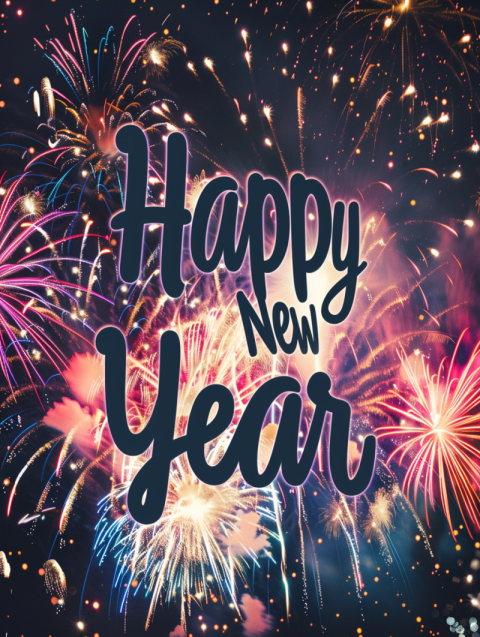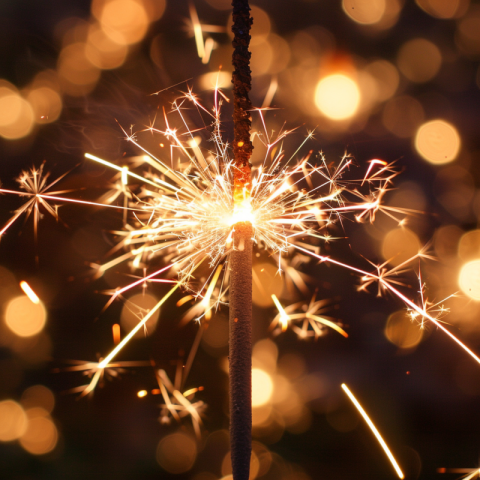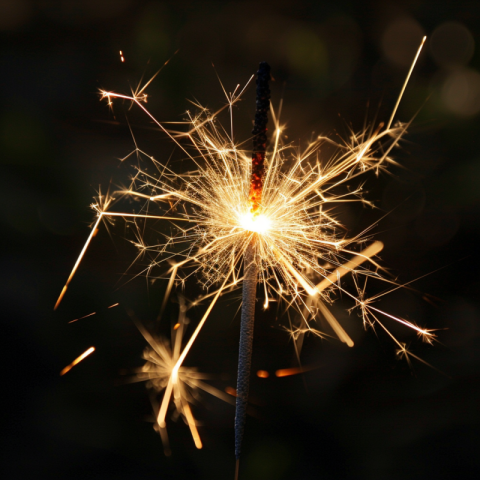











New Year: A Time for Reflection, Renewal, and Resolution
The New Year, marking the beginning of a new calendar year, is a universally celebrated occasion, filled with hope, anticipation, and the promise of a fresh start. While the specific date and traditions vary across cultures, the New Year is generally a time for reflection on the past year, setting goals for the future, and celebrating with loved ones. It's a time to embrace new beginnings and to look forward to the opportunities that lie ahead.
1. The History of New Year Celebrations: Ancient Roots
The celebration of the New Year is an ancient practice, with roots that can be traced back thousands of years:
- The ancient Babylonians are believed to be among the first to hold recorded celebrations in honor of the New Year, some 4,000 years ago. They celebrated the new year with a religious festival called Akitu, during the first new moon after the vernal equinox.
- The ancient Egyptians celebrated the New Year with the annual flooding of the Nile River, which coincided with the rising of the star Sirius.
- The ancient Romans initially celebrated the New Year in March, but their calendar was later reformed, and January 1st became the official start of the new year in 153 BCE.
- Many other ancient cultures, including the Chinese and the Persians, also had their own New Year celebrations, often tied to agricultural cycles or astronomical events.
2. New Year's Eve and New Year's Day: A Global Celebration
Today, the most common New Year celebration takes place on December 31st (New Year's Eve) and January 1st (New Year's Day), following the Gregorian calendar:
- New Year's Eve is often marked by parties, social gatherings, and public celebrations, culminating in a countdown to midnight.
- Fireworks displays are a common feature of New Year's Eve celebrations around the world.
- New Year's Day is often a public holiday, a day for spending time with family and friends, and for reflecting on the year ahead.
3. New Year's Traditions Around the World: Diverse Customs
New Year traditions vary widely across cultures, reflecting unique customs and beliefs:
- United States: The dropping of the ball in Times Square, New York City, is an iconic New Year's Eve tradition. People also make New Year's resolutions, sing "Auld Lang Syne", and eat black-eyed peas for good luck.
- Spain: Eating 12 grapes at midnight, one for each stroke of the clock, is a Spanish tradition believed to bring good luck for the 12 months ahead.
- Japan: New Year, or Oshogatsu, is one of the most important holidays in Japan. Families clean their homes, visit temples and shrines, and enjoy special meals.
- China: The Chinese New Year, also known as the Spring Festival, is celebrated with dragon and lion dances, fireworks, and the giving of red envelopes (hongbao) containing money. It typically falls between January 21st and February 20th.
- Scotland: Hogmanay, the Scottish New Year celebration, involves unique traditions like "first-footing," where the first person to enter a home after midnight brings gifts for good luck.
- Brazil: Wearing white clothing on New Year's Eve is a popular tradition in Brazil, symbolizing peace and renewal. Many people also jump over seven waves in the ocean for good luck.
- Denmark: People stand on chairs and "leap" into the New Year at midnight for good luck.
4. New Year's Resolutions: Setting Goals for the Future
Making New Year's resolutions is a common tradition in many cultures:
- Resolutions are personal goals or promises that people make for the coming year, often related to self-improvement, health, or lifestyle changes.
- Common resolutions include losing weight, exercising more, quitting smoking, saving money, and learning a new skill.
- While many people struggle to keep their resolutions, the act of setting goals can be a positive step towards personal growth.
5. The Symbolism of the New Year: Hope and New Beginnings
The New Year is a powerful symbol of hope, renewal, and new beginnings:
- It's a time to leave behind the past and to look forward to the future with optimism.
- The New Year offers a chance to start fresh, to make positive changes, and to pursue new opportunities.
- It's a time for reflection, gratitude, and setting intentions for the year ahead.
6. Other New Year Celebrations: Beyond January 1st
While January 1st is the most widely recognized New Year's Day, many cultures celebrate the New Year at different times of the year:
- Rosh Hashanah (Jewish New Year): Typically falls in September or October.
- Nowruz (Persian New Year): Celebrated on the vernal equinox, usually March 20th or 21st.
- Diwali (Hindu Festival of Lights): While primarily a festival of lights, Diwali is also considered a New Year celebration in some parts of India and typically falls in October or November.
- Songkran (Thai New Year): Celebrated from April 13th to 15th.
7. Commercialization of the New Year
- Like many holidays, the New Year has become increasingly commercialized, with businesses promoting special sales, events, and products.
- While some people criticize the commercialization of the New Year, it's also a time for many businesses to thrive, particularly in the hospitality, entertainment, and retail sectors.
Conclusion:
The New Year is a globally celebrated occasion that transcends cultural boundaries, offering a shared experience of hope, renewal, and new beginnings. Whether marked by fireworks, feasts, or quiet reflection, the New Year provides an opportunity to connect with loved ones, set intentions for the future, and embrace the promise of a fresh start. As we transition from one year to the next, the New Year reminds us of the cyclical nature of time and the enduring human desire for growth, progress, and a better tomorrow.
New Year, New Year's Eve, New Year's Day, New Year 2023 (or relevant year), New Year's resolutions, New Year's traditions, New Year's celebrations around the world, Times Square Ball Drop, Auld Lang Syne, Chinese New Year, Rosh Hashanah, Nowruz, Diwali, Songkran, Hogmanay, history of New Year, New Year's Eve parties, New Year's Eve fireworks, New Year's Eve events near me, New Year's food, New Year's drinks, New Year's Eve outfits, Happy New Year, New Year greetings.

